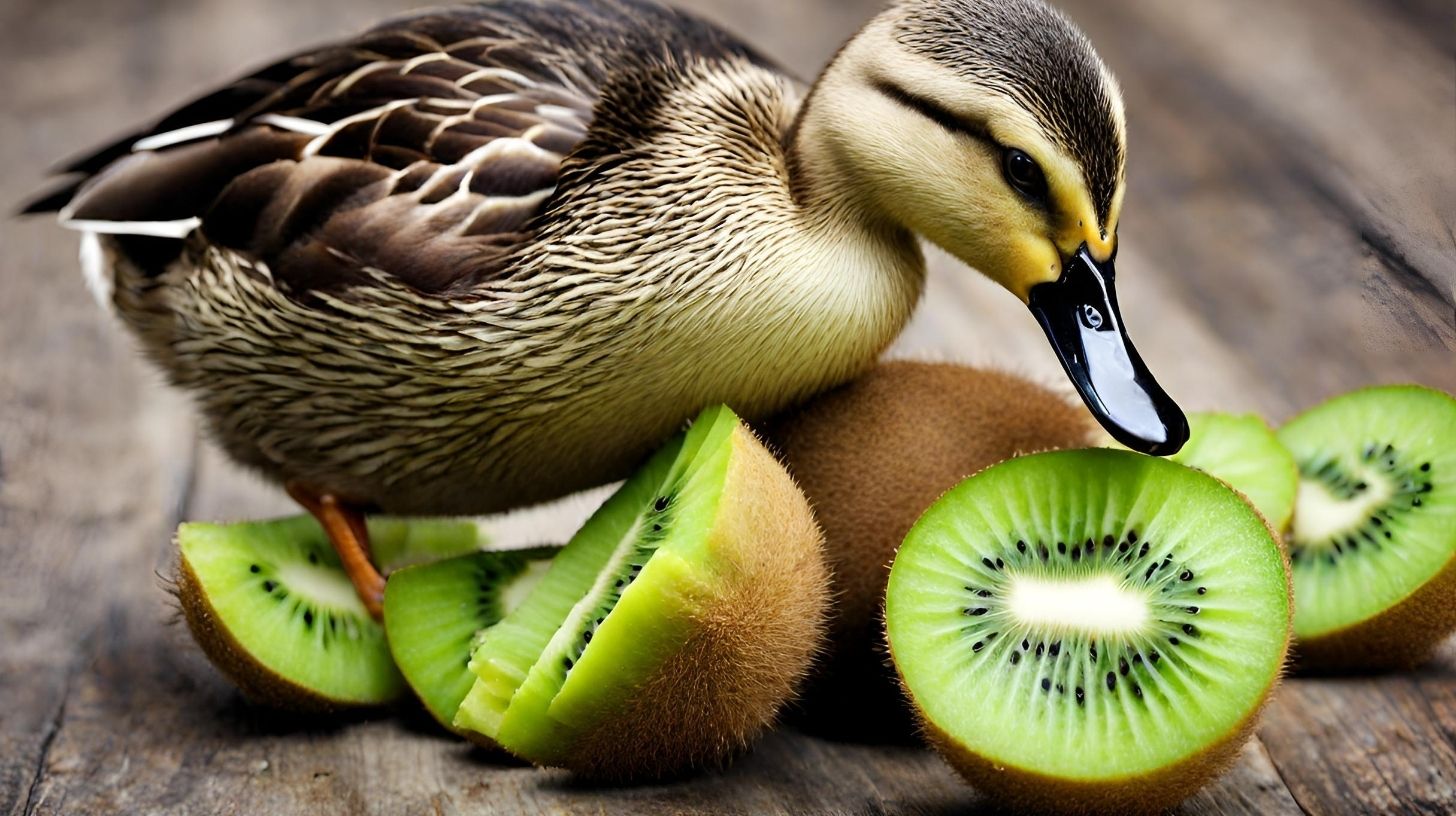Do Ducks Eat Ticks? Unveiling the Dietary Truth

Table of content:
Ticks are a common nuisance that pet owners, outdoor enthusiasts, and farmers have to deal with. These tiny arachnids can spread dangerous diseases to humans and animals when they bite to feed on blood. But what about our fine, feathered friends? Can ducks help control the tick population? Do ducks eat ticks? Let’s find out.
Do Ducks Eat Deer Ticks?
Deer ticks (or black legged ticks) are one of the most common ticks throughout many regions of North America. Their scientific name is Ixodes scapularis. Unfortunately, deer ticks are vectors for several dangerous illnesses, including Lyme disease, babesiosis, anaplasmosis, Powassan virus, and more.
So what about ducks? Do ducks eat deer ticks?
The answer is yes, ducks are eager consumers of deer ticks. In fact, research has shown ducks have a strong preference for deer ticks over other species.
A study from the University of California observed the tick eating habits of Indian Runner ducks. They found 90% of the ticks the ducks consumed were western black legged ticks, the variety known to carry Lyme disease.
Ducks from the Anas platyrhynchos species (Mallards, Calls, Cayugas) also readily ate immature deer ticks in a trial from Cornell University.
So if you’re battling deer ticks on your property, ducks could offer an all-natural way to control them. Just one duck can gobble up 5,000 ticks or more per season!
What Kinds of Ticks Do Ducks Eat?
Ducks aren’t picky eaters when it comes to ticks. They will readily feast on any tick species common to their natural habitat. However, as mentioned above, ducks seem to relish deer ticks the most.
Aside from deer ticks, other tick varieties consumed by ducks include:
- Lone star ticks – Also called turkey ticks, these ticks are common in woodlands and grassy areas in southeastern and eastern states. They can transmit various diseases.
- American dog ticks – Abundant nationwide, dog ticks prefer grassy, brushy areas. They spread illnesses like Rocky Mountain spotted fever and tularemia.
- Brown dog ticks – Named for their preference for dogs, these ticks live nearly everywhere as hitchhikers on dogs. They can cause tick paralysis and transmit diseases between canine hosts.
- Groundhog ticks – Living in burrows with hosts like groundhogs, this species will occasionally bite humans. They are vectors for Tularemia and tick paralysis.
- Woodchuck ticks – Similar to groundhog ticks, these ticks inhabit burrows and bite humans on occasion. They spread Tularemia to their hosts.
- Rabbit ticks – Preferring to feed on rabbits and hares, rabbit ticks will opportunistically bite humans. They are associated with Tularemia transmission.
- Squirrel ticks – As the name suggests, these ticks live on squirrels and related hosts. They’ll bite humans if given a chance.
- Pacific Coast ticks – On the West Coast, this tick species feeds on small mammals and rodents. They can transmit anaplasmosis and Colorado tick fever.
The wide variety of host-seeking ticks consumed by ducks show they are eager tick eaters. Any tick species in the duck’s range can end up an appetizer.
Do Wild Ducks Eat Ticks?
Ducks evolved as natural tick eaters, so wild ducks gladly consume any ticks they come across during daily foraging. Wild duck species include Mallards, Black Ducks, Wood Ducks, Canvasbacks, Scaups, Teals, Wigeons, Pintails, and many more.
These ducks frequent watery areas like marshes, streams, ponds, and flooded fields. As they dabble and forage in vegetation, they encounter lots of opportunities to ingest ticks questing for a blood meal.
Adult ticks climb to the tips of grass, plants, and brush waiting to grab onto a passing host. Immature ticks called nymphs also quest in the same habitats.
When wild ducks splash through swampy areas, they easily pick up these host-seeking ticks. Researchers who examined wild ducks during tick seasons consistently found ticks in their digestive systems.
So while accurate statistics are hard to pin down, wild ducks certainly contribute to natural tick control by eating substantial numbers.
Do Domestic Ducks Eat Ticks?
The natural tick-eating instinct extends even to domestic ducks. Just like their wild relatives, domestic duck breeds readily gobble up ticks on your property.
Some breeds reported to eagerly consume ticks include:
- Calls
- Mallards
- Runners
- Pekins
- Wales
- Anconas
- Buff ducks
- Cayugas
- Swedish ducks
- Aylesburys
- Crested ducks
However, Indian Runner ducks seem to have the most legendary tick-devouring reputation. This intelligent duck breed is lanky and upright, allowing them to forage well in grassy areas.
Backyard poultry owners report great success with using Runners for tick control. The ducks eliminate ticks while also providing friendly companionship.
For best results, allow your ducks to range freely in any tick-infested areas during peak daily tick activity. Don’t confine domestic ducks totally or their tick-eating powers will be wasted!
Do Baby Ducks Eat Ticks?
Ducklings hatch out ready to start foraging on their own right away. Although they require supplemental feeding with starter feed, ducklings also begin eating insects and other invertebrates almost immediately.
So while we don’t have scientific data on the topic, it’s safe to assume baby ducks will consume any ticks they come across while wandering through vegetation. Their natural tick-eating instincts kick in once they start venturing outdoors.
However, ducklings younger than 4-6 weeks old are pretty vulnerable to predation. You wouldn’t want to introduce tiny hatchling ducks into a tick-infested area until they have grown and developed.
An older duckling with adult plumage from 6-16 weeks old will have full tick-munching skills plus greater survival instincts. At this age, they can provide tick control around your property while still being small enough to avoid flying away.
Using Ducks for Tick Control
If you’re considering ducks for eco-friendly tick management, a few tips will help you get the best results:
- Choose duck breeds mentioned above with proven tick-eating reputations
- Get at least 2-3 ducks. More ducks equal more tick consumption.
- Give ducks pools/pans of clean water to swim and wash ticks off their feathers
- Provide proper housing at night to protect them from predators
- Allow ducks to range on any problem tick areas for several hours daily
- Put up fences or clips on wings to prevent ducks roaming too far
- Provide proper nutrition and health care to keep your ducks thriving
- Use ducks alongside other tick control methods for best success
With this proper care, ducks can offer you many years of loyal tick-gobbling duty!
What Ticks Do Ducks Avoid Eating?
Ducks are eager tick consumers, but they do occasionally shun certain tick species. Researchers in British Columbia found ducks avoided eating native Dermacentor ticks in favor of other tick varieties.
This may be because Dermacentor ticks frequent dry areas and typically feed on larger mammals like livestock, deer, coyotes, and bears. They aren’t usually found questing in the damp areas ducks frequent.
So while ducks eagerly eat host-seeking ticks in their wetland environments, they may ignore any species that live in drier zones.
However, ducks can still provide tick control in many common tick hotspots like woodlands, parks, wet meadows, pond edges and stream banks where ticks nest. Introducing ducks likely won’t eliminate every tick but can significantly reduce populations.
Conclusion
Ducks are naturally talented tick eating machines. Both wild and domestic ducks eagerly consume almost any host-seeking tick that happens across their path during daily foraging.
While ducks won’t control ticks on their own, they provide an easy, chemical-free way to reduce tick numbers, especially in damp areas. When paired with other methods like landscape management and deer fencing, ducks can be a handy addition to an integrated pest management plan.
If you’re battling a tick infestation, a flock of tick-eating ducks might just become your new best friend! Thanks to their innate tick devouring capabilities, you may be able to hike, garden and play on your property again.
So consider adding a few ducks from tick-loving breeds like Runners or Calls. You’ll be rewarded with friendly feathered helpers offering natural tick control.
Welcome. I’m Adreena Shanum, the proud owner of this website, and I am incredibly passionate about animals, especially poultry. I founded adreenapets.com as a labor of love, stemming from my desire to share my knowledge and experiences with poultry enthusiasts worldwide.




